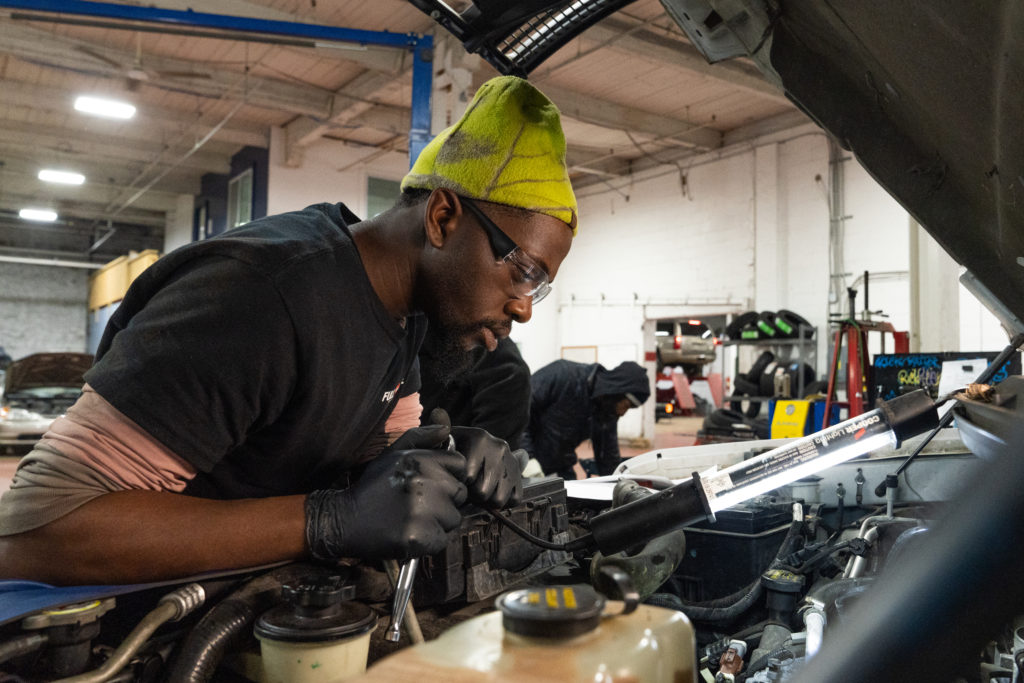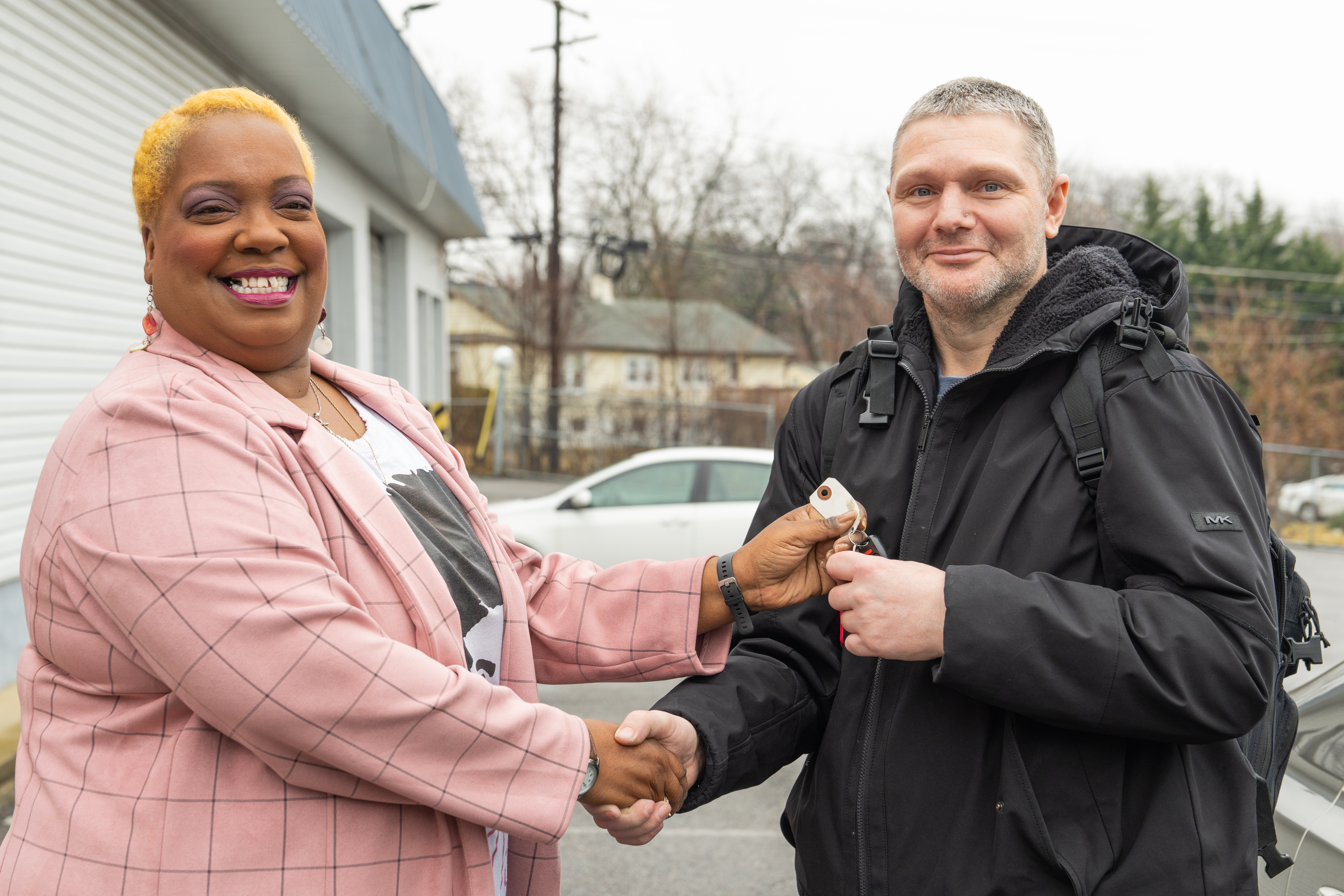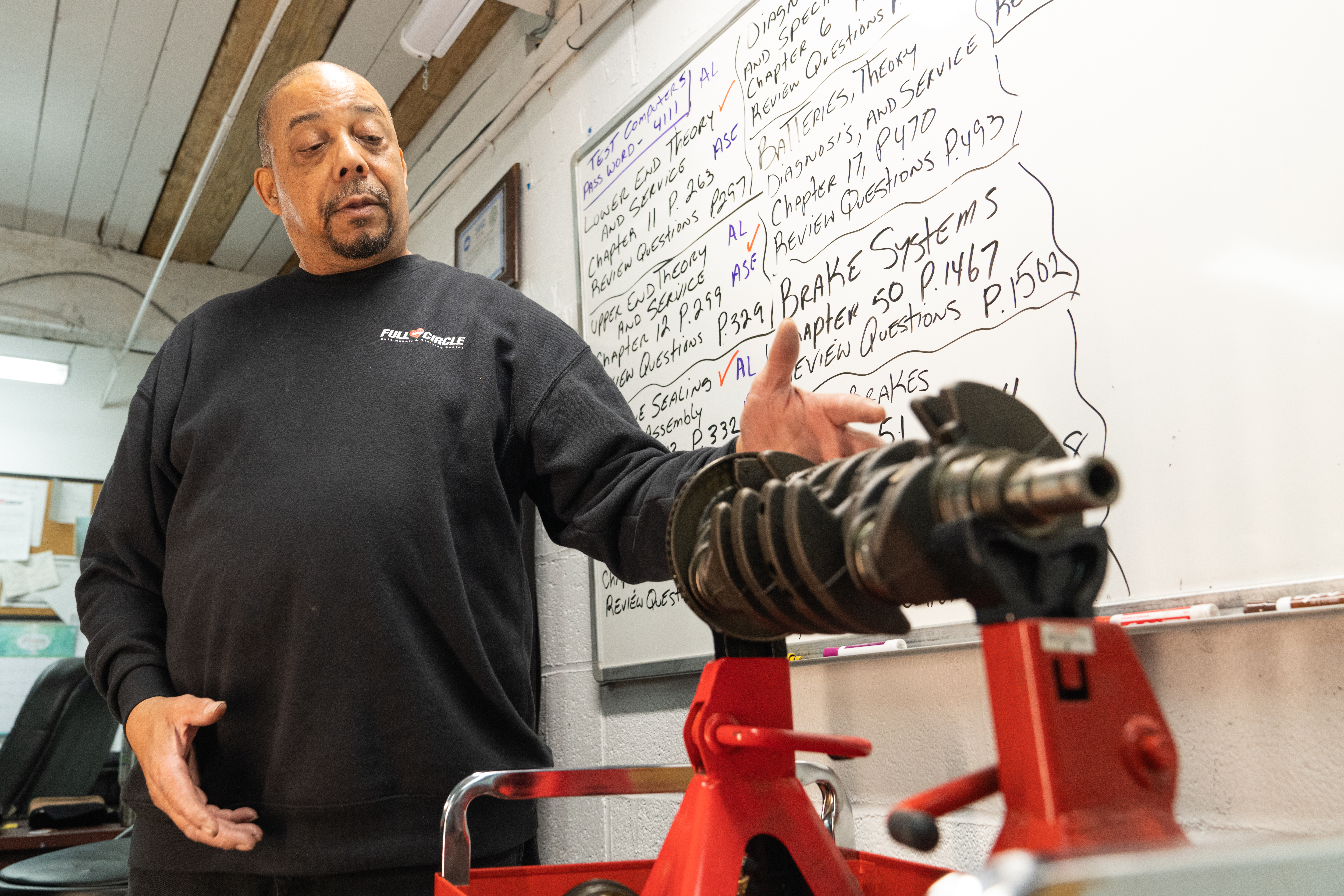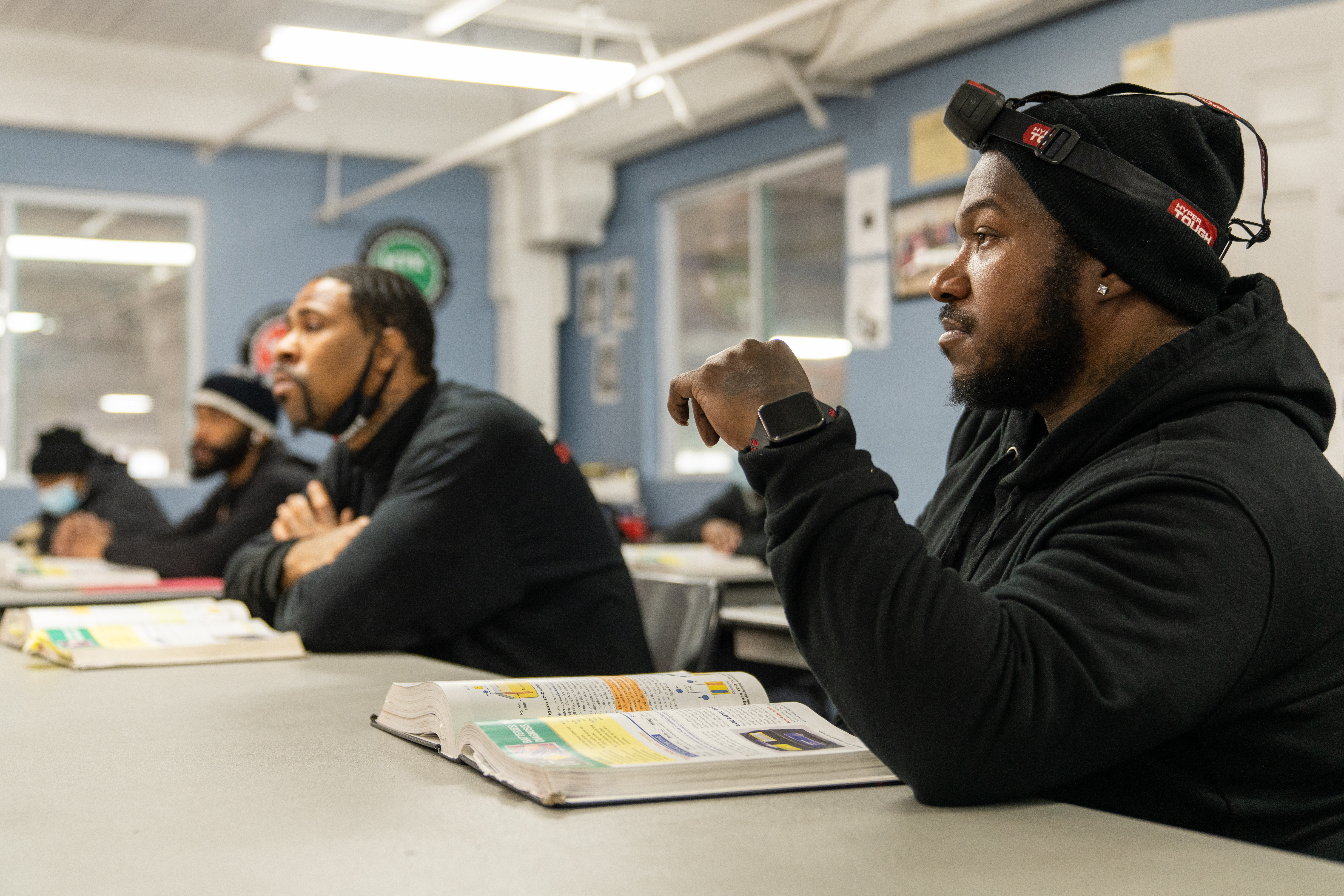Without regular access to reliable transportation, it’s almost impossible to get and maintain employment. Since 1999, the Abell Foundation has supported Vehicles for Change (VFC) in making low-cost cars available to low-income job seekers in Baltimore City, fueling economic opportunity.
In 2015, VFC took their programming to the next level. Needing trained automotive technicians to repair donated cars, and with unemployment rates among those recently released from prison exceeding 50%, VFC decided to launch an automotive technician repair program. Rather than create the program from scratch, VFC partnered with the Department of Public Safety and Correctional Services to employ those who have been trained in auto repair during their incarceration.
With support from the Abell Foundation, VFC hires men and women who have been recently released from prison or who have been granted work release. Almost all program applicants have successfully completed the 600-hour Automotive Service Excellence (ASE) Auto Maintenance and Light Repair training program, which is a training program offered at five Maryland prisons. VFC requires each program applicant to receive a recommendation letter from an automotive repair instructor.
VFC employs a full-time Master Technician to supervise the newly hired auto techs. Those hired receive three to five months of paid work experience, earning $10.50 an hour. The on-the-job experience is designed to build the trainees’ resumes and overcome any reservations that employers have about hiring returning citizens. Each week, the trainees spend eight hours in the classroom and 32 hours working on cars at VFC’s Full Circle Service Center, a social enterprise that offers oil changes and air conditioning inspection and repair, tire replacement and rotation, battery replacement, and other repairs. All trainees must pass at least three ASE certification tests; many trainees pass several of the additional eight tests.
The program is working. To date, VFC has trained over 175 individuals, boasting a 90% completion rate, a 98% job placement rate of program graduates, an average starting wage of $17.50 per hour, and a 95% one-year employment retention rate, although not all graduates are employed at their original job placement.
Photos taken by Wide Angle Productions, a social enterprise of Wide Angle Youth Media.



